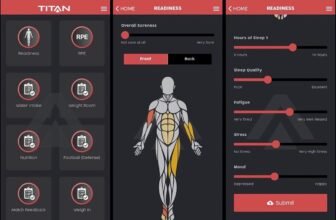Which is the Best AI for Journal Writing

What is AI Journaling?
AI journaling is the practice of using artificial intelligence to assist with personal or professional journaling. It involves AI-powered tools and applications that help individuals organize their thoughts, generate ideas, enhance their writing, and even analyze emotions. AI journaling can serve as a digital diary that provides suggestions, prompts, and intelligent reflections, making the process of journaling more effective and insightful.
With the rise of AI in different domains, journaling has also evolved from traditional handwritten notebooks to digital platforms enhanced by AI. These intelligent tools help users develop writing habits, track their mental and emotional well-being, and generate entries with minimal effort. AI journaling is particularly useful for those who struggle with writer’s block, need structured prompts, or seek a more interactive journaling experience.
Which is the Best AI for Journal Writing?
Several AI-powered journal writing tools have emerged, each offering unique features to cater to different needs. The best AI for journal writing depends on what you’re looking for, whether it’s guided journaling, AI-generated prompts, emotion tracking, or advanced writing assistance. Here are some of the top contenders:
- Journey AI – One of the most popular AI-powered journaling platforms, Journey AI provides intelligent suggestions, mood tracking, and daily prompts to inspire writing. It also integrates with other applications to help users maintain a consistent journaling habit.
- Day One – Day One is a well-established digital journaling app that has incorporated AI-powered features such as voice-to-text and smart tagging. It also offers automatic categorization of entries based on themes, making it easy to navigate past journal entries.
- Reflectly – Using AI to guide users through personal reflections, Reflectly focuses on mental wellness and self-improvement. It uses natural language processing (NLP) to assess mood patterns and offer insightful feedback.
- Journalistic AI – Designed for professionals and academic writers, Journalistic AI helps craft well-structured journal entries, blog posts, and research-based writing with AI-generated outlines and content suggestions.
- Notion AI – Although Notion is known as a productivity tool, its AI integration enables users to create AI-generated journal entries, summaries, and reflective notes.
Each of these AI-powered journaling apps brings something unique to the table, making it important to choose one based on personal preferences and needs.
What Are the Best Tools for Journaling?
Apart from AI-specific journal apps, there are several other digital tools that can enhance the journaling experience:
- Evernote – A versatile note-taking tool that can be used for journaling with AI-powered search and organizational features.
- Google Keep – A simple and effective tool for quick journal entries and voice memos.
- Obsidian – A markdown-based journaling tool that allows linking thoughts together for a structured approach to personal reflections.
- Roam Research – Designed for knowledge management, Roam Research is ideal for deep journaling and tracking interconnected thoughts.
- Grammarly AI – While not a journaling app itself, Grammarly AI helps improve journal writing by providing grammar corrections and style suggestions.
- ChatGPT – AI-driven writing assistance that helps generate journal entries, offer prompts, and improve writing structure.
These tools complement AI journal apps by providing additional functionality, such as note organization, AI-assisted editing, and cross-platform accessibility.
Can AI Write a Journal Article?
Yes, AI can write a journal article! AI-powered writing tools such as OpenAI’s ChatGPT, Jasper AI, and Writesonic can generate well-structured journal articles based on prompts and guidelines. AI can assist with:
- Generating ideas – AI can suggest topics, themes, and outlines for journal articles.
- Writing drafts – AI can generate full-length articles based on a given topic or set of keywords.
- Editing and improving content – AI tools like Grammarly and Hemingway Editor refine writing for clarity and engagement.
- Summarization – AI can condense long articles into key points for quick reference.
- Data analysis – AI can analyze datasets and generate research-based journal articles.
In the digital age, artificial intelligence is reshaping how we create content. From blog posts to marketing copy, AI-powered writing tools have become indispensable for writers, businesses, and students alike. But with so many options available, a common question arises: Is there a free AI writing tool? And if so, which AI writer is everyone using?
Exploring Free AI Writing Tools
Yes! There are several free AI writing tools available, though they often come with limitations. Free AI writers can help generate text, suggest improvements, and even rewrite content. Some of the most popular free AI writing tools include:
- ChatGPT (by OpenAI) – One of the most widely used AI chatbots, ChatGPT offers a free version that can generate text, answer questions, and assist with writing tasks. The paid version, ChatGPT Plus, provides access to more advanced models.
- Google Gemini (formerly Bard) – Google’s AI chatbot also offers free text generation capabilities and is great for brainstorming ideas.
- QuillBot – Known for its paraphrasing tool, QuillBot has a free version that helps refine and rephrase sentences.
- Writesonic (Basic Free Plan) – Writesonic offers AI-generated content in a free-tier model, though with limited usage.
- Rytr – A budget-friendly AI writing tool that offers a free plan with limited word generation per month.
While free AI writing tools exist, they usually have word limits, feature restrictions, or require subscriptions for premium features.
The AI Writer Everyone Is Using
If you’ve spent time on social media or in writing communities, you’ve probably heard about ChatGPT. OpenAI’s ChatGPT is arguably the most widely used AI writer today. Since its launch, it has gained millions of users due to its impressive ability to generate human-like text, answer queries, and assist with various writing tasks. The free version is powerful, but those needing advanced features opt for ChatGPT Plus, which provides access to GPT-4 for more refined responses.
Businesses, students, marketers, and content creators rely on ChatGPT for everything from drafting emails to creating blog posts. Its ease of use, versatility, and free accessibility make it the go-to AI writer for many.
While free AI writing tools exist, they often come with limitations. If you’re looking for the most popular AI writer, ChatGPT is leading the pack. Whether you’re crafting an article, generating ideas, or improving your writing, AI tools are here to help—often for free!
While AI is highly capable of drafting journal articles, human intervention is still needed to ensure accuracy, coherence, and originality. AI-generated content should always be reviewed and refined before publication.
Whether you’re looking to maintain a daily diary, track mental health, or create professional journal articles, AI-driven tools can significantly improve the journaling process. However, while AI offers great assistance, the essence of journaling, self-expression and reflection, remains a deeply human experience. AI should be seen as an enhancer rather than a replacement, making journaling easier and more insightful for everyone.





